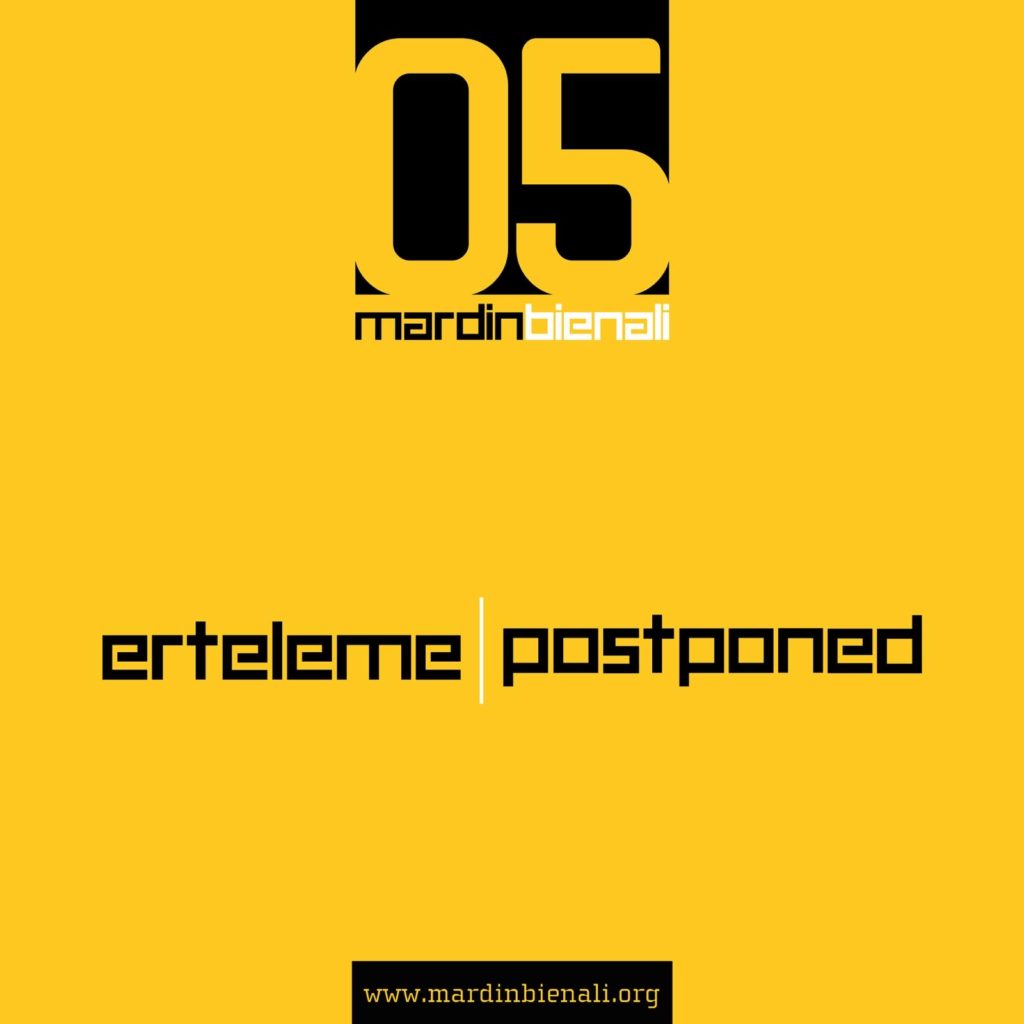The 22nd Biennale of Sydney Reopens with Extended Dates
1 June 2020Theme of the 13th Shanghai Biennale
7 June 2020
Image courtesy of Mardin Biennial
5th International Mardin Biennial
https://mardinbienali.org
Even as we witness our world coming to a sputtering halt and the movement of its citizens confined in space, something moves within and escapes our unnatural immuration. For an outward motion, whether it is to greet the light at the end of the tunnel or to reach for the hand extended towards us feels only natural to us. We are grateful for these mysterious lines of travel that defy distance, boundaries, laws of physics and common sense, still open to us in the multifarious forms that our love, care, hope and daydreams take. It is paradoxical how the inward focus of our individual seclusions has allowed us the time and space to tune into these mystical projections of the body as well as the hitherto ignored perspectives proffered by alternate social ecologies without. The abrupt termination of our physical movement has brought in sharp contrast not only the forced movements of the less-privileged bodies around us—of the migrants workers, the essential service providers, the refugees—that enable us to stay put and relatively safe within our apartments, but also the interminable flux of goods and services, capital and desires, across the integrated global network that belies the pretensions to nationalistic sovereignty. The truth stares us in the face, revealing our freedom as bought at the cost of somebody else’s movement and our survival as dependent on that of the other. The other here can be filled in by any number of subjects—the migrant, the animal, the colonised and finally nature itself. Even as we find ourselves at the receiving end of the treatment that has been reserved for the marginal sections of our society historically, the fact that this newfound state of isolation is a global phenomenon, gives us that rare chance to activate our empathies and come together across our differences, across space-time, to truly reflect on the path that has brought us here.
To say that the body gives into the ‘new normal’ is to underestimate the depth of its affect, the breadth of its resistance and the thrust of its desire. It is to submit without a fight to the technical-capitalist subjectivation that benefits from the fiction of a semiotic-machinic body that can go on producing from its interfaced cells without the need to step outside, socialise, come in contact with other bodies, or engage in proximate forms of exchange. In order to ascertain that these conditions of isolation, alienation and surveillance do not become permanent features of our lives by playing into the hands of the very system that has led us here, we need to keep a close watch and ask the governments the right questions so as to avoid these destructive fates in the future. We have been offered a prodigal return by the earth that has quite literally taken us by the hand, nudging us to amend our ways and relearn slow, symbiotic and sensitive modes of existence. We are in the middle of a lesson in sustainable living explicated through an indefinite suspension of our privileges and an abnegation of all superfluities surrounding our lifestyle. What we need is to acknowledge this gesture of caring reconciliation, and use this moment of detention to re-ground ourselves but not only. Care for one must translate into an attentive curation of all and our reparative efforts must proceed intersectionally and overcome our narrow anthropocentric concerns.
As the earth reclaims our natures slowly, so shall we strive to reclaim our natural need for communality, social encounters and equality. The hermetic seclusion that we find ourselves in has an enormous potential for collective spiritual awakening, albeit one that does not shy away from environmental action and social justice. Our silence can become a way for us to be radically present to the ecocidal grief, our abstinence an exercise in hyperempathy, and our common capitalistic divestments can help us feel our way towards a mystical cosmopolitanism. In these neo-mystical, post-enclosure ‘ecologies of renouncement’ lies the hope for emancipatory futures that are not built atop the servile foundations of the ‘old-normal’. And whilst hope remains green, the future holds the promise of grass. Grass being a great equaliser that symbolises a reversal of encroachment, a regenerative de-territorialization and a greening over of the scars left on the face of the earth. One can try to regulate it, but its unruly, anarchic nature eventually finds a way. Just like our love and our dreams.
Contingency is not new to the context of Mardin and when we started working on the upcoming fifth edition of the biennial we were braced against an eventuality of postponement. And now that such an eventuality looms before us in the form of the rupture produced by Covid-19, we have decided to move the exhibition dates to such a time in 2020 when we will be able to do justice to our ideas, our artists and our publics. Meanwhile, we intend to use this universal moment of reflection to situate our process, expand our outreach and deepen our entanglements with the locality. We are glad to have this time to familiarise ourselves further with the works of local practitioners, to develop more meaningful, nuanced and intimate conversations with our artists, and to learn more about the history of our venues as well as the inclinations of our audiences. Globally speaking, the lockdown has created a context where some of our more alternative, esoteric and utopian theories have become feasible. With slowness and deliberate care we hope to situate and cultivate some of these experiments in social ecologies past and present as prototypes for the future. And just like grass that returns with spring, we will resurface more vibrant and energised than ever. For now, this biennial is on a slow simmer.
Mardin Biennial Curator
Adwait Singh



